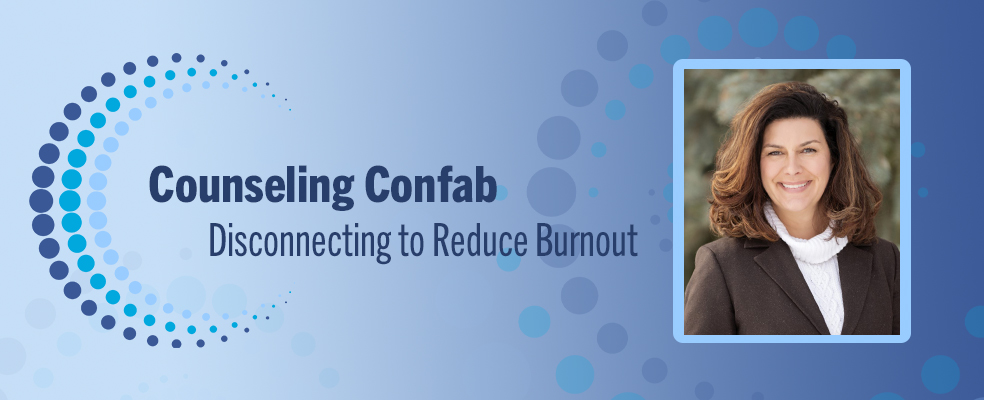
Elizabeth Williams Haarberg is a member of Chi Sigma Iota and a 2021 Minority Fellowship Program-Addictions Counselor. She is currently pursuing a master’s degree in counseling.
A client advised me to be careful how much energy and care I put into counseling to avoid “burning out,” and I then told him my secret to letting go and detaching. Many counselors have heard ways to combat helper’s fatigue; everything from meditation to vacation has been suggested to prevent burnout. I’m throwing my hat into the burnout remedy ring on what has helped me when dealing with this issue.
- Release the client. This is not a literal release such as a referral, but a metaphorical release. When the client leaves my space, I release, or detach, from them and the session. This disconnect helps me compartmentalize my professional and personal life. Personally, as a Christian, I hand them off to Jesus. But my advice is to release or hand off to whatever works best for you.
- Realize that I am just a part of the solution. Clients live most of their lives outside of our offices. As counselors, we typically impact a client 1 hour out of their 168 total hours for the week. The client will come into contact with many people during the other 167 hours who likely have a significant impact on them.
- Get to the root of burnout. What are your burnout triggers? What are the biggest elements that create a down-and-out feeling? Realizing the pieces that are causing burnout is a way to remedy the situation.
What is being described here is a way to fully engage by partnering with the client when they are present and releasing them as they leave. The release is meant to alleviate the counselor from carrying the client’s heavy burdens after the client departs.
Detaching is a practice that takes time to fully engage. To remain effective in helping professions, and in life, it has been imperative to learn how to disconnect and stay present.
**Opinions and thoughts expressed in our Counseling Confab articles belong to the authors and do not necessarily reflect the opinions or practices of NBCC and Affiliates.